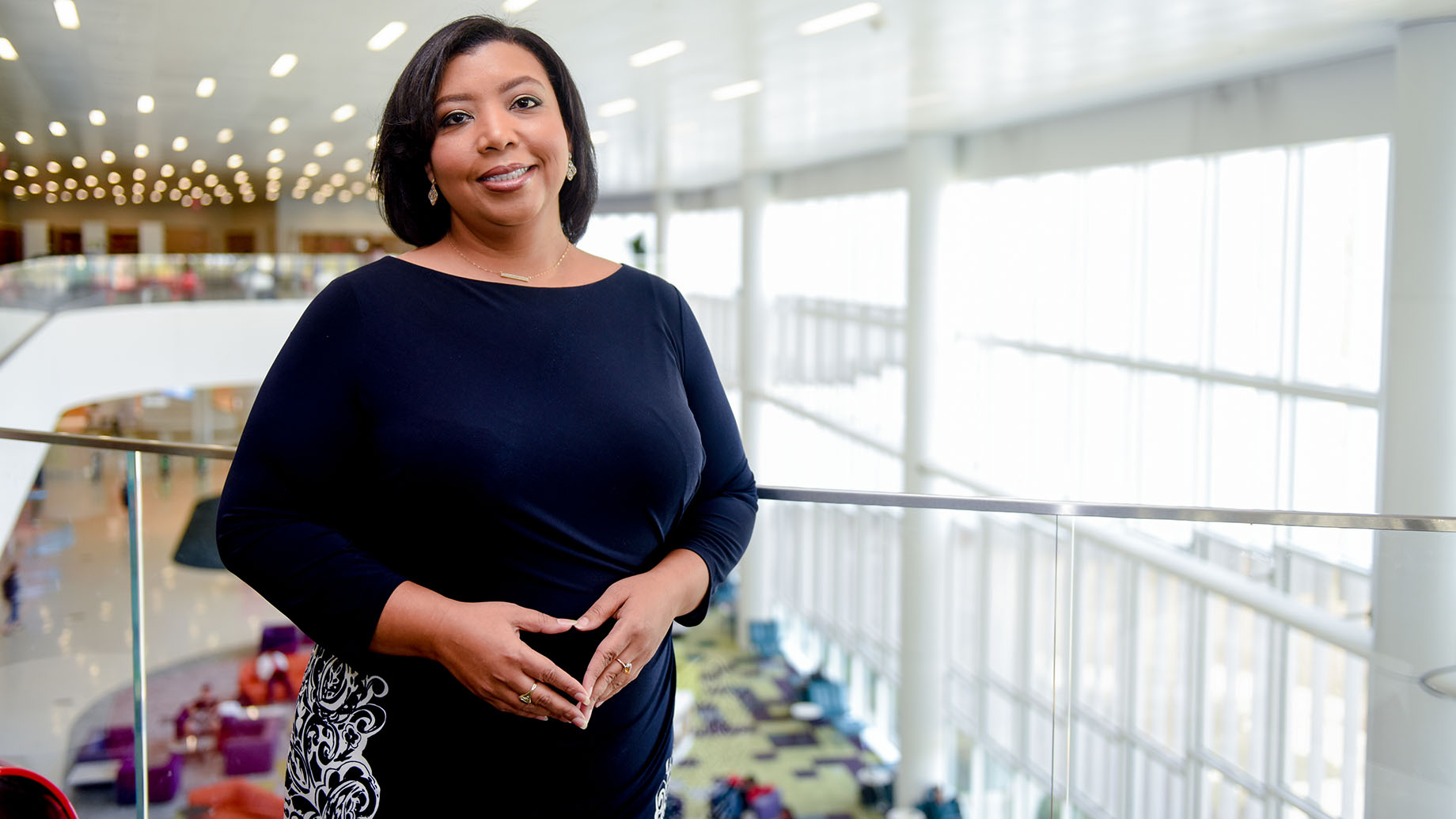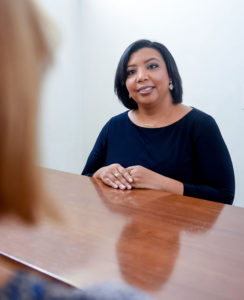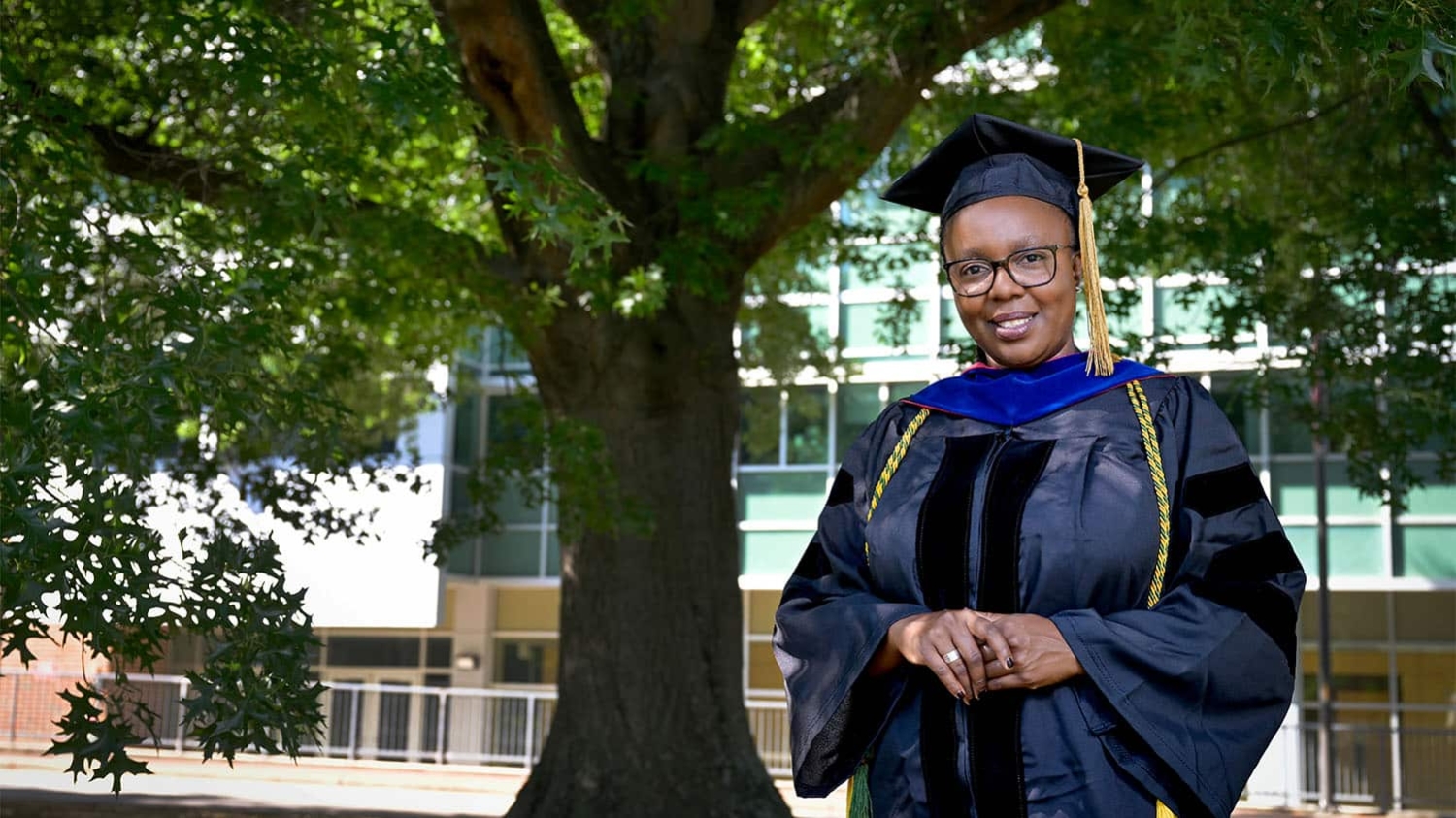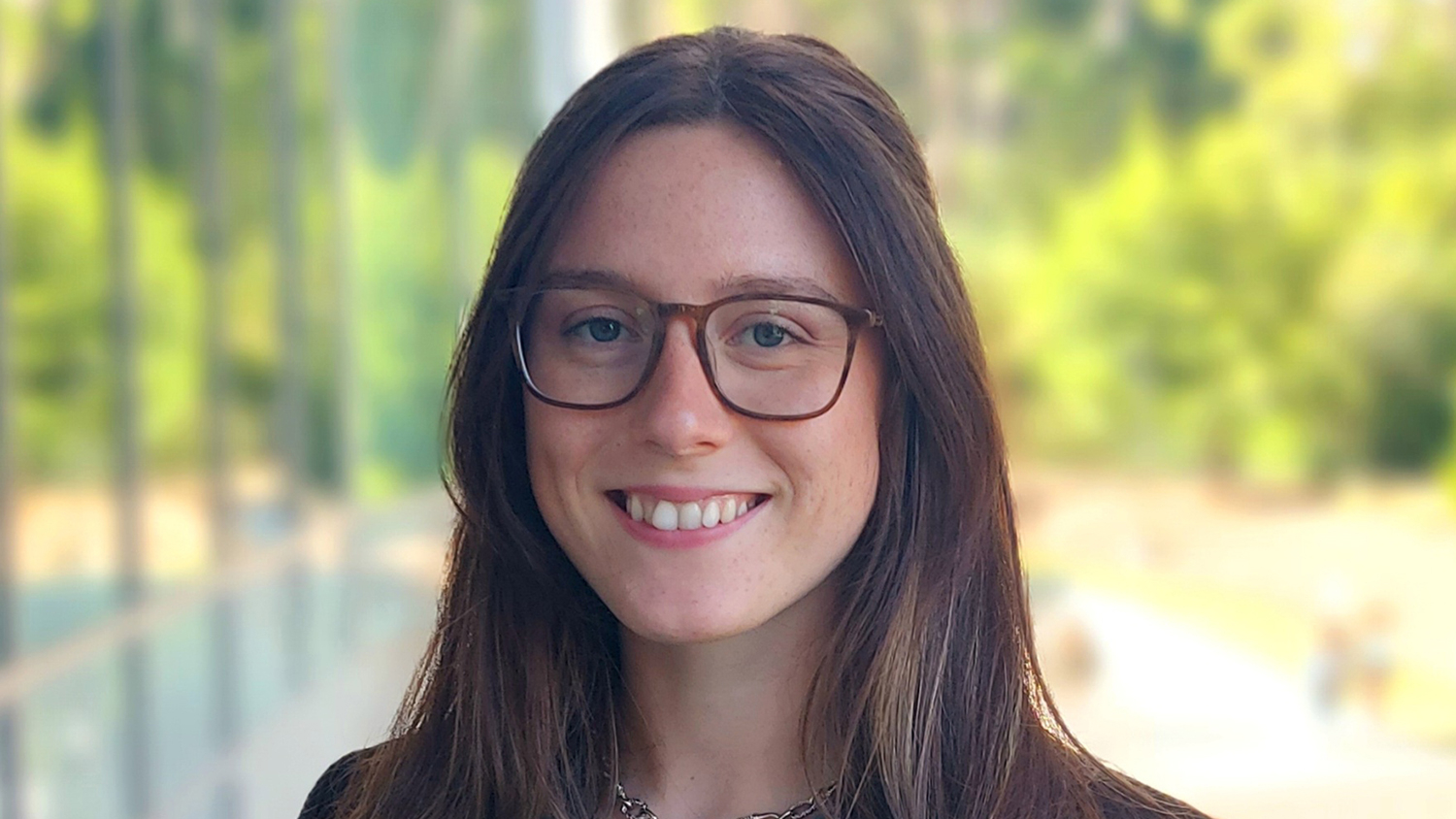Researching Ethics in Counseling with an Aim to Help Others

Latonya Graham, who worked in the area of personal notification for sexually transmitted disease, understands the social costs for a state that ranks high nationally for opioid addiction. Four North Carolina cities rank among the top 20 nationwide— Wilmington, Jacksonville, Fayetteville, and Hickory.
Sexually transmitted diseases can parallel the alarmingly high addiction statistics in North Carolina.
The ranking doesn’t surprise Graham, who learned years earlier that STDs were far too commonplace in the state. “With all of their efforts, it is a difficult task for prevention experts and other public health officials to get ahead of the issue,” she notes. As a young college graduate in her first public health job, Latonya Graham entered the homes of the well-heeled and the down-on-their-luck.
She was there to deliver highly sensitive health information as one of a network of public health officials tasked with notification of sexually transmitted diseases.
Forget stereotypes, Graham stresses. This exchange took place in all types of homes.
From this vantage point, Graham has had a very particular window into the most sensitive of issues. Her first job in the public health sector as a health communication specialist at the American Social Health Association included psychosocial counseling and referrals related to STDs.
In 2000, Graham accepted a position with the N.C. Department of Health and Human Services as a public health disease control specialist. In that role, she counseled, interviewed, and provided resources to patients diagnosed with syphilis and HIV/AIDS.
Graham was also required to perform investigative activities, intended to locate and refer those suspected of having STDs for examination and treatment. This was neither simple nor straightforward.
She performed an unnerving job. Working alone, knocking on doors, and trying to broach the topics of disease status and treatment with all types of people, Graham grew up fast.
“I was in my 20s…so young! I didn’t know how complicated it could be. We needed to be careful about how, when, and where we approached our patients. We were asking people to trust us with the most intimate details of their personal lives.”
She took this responsibility seriously, also bringing patients information and support. “I wanted to leave people with knowledge, hope, and their dignity intact.” At first, “I was amazed that my position existed. I felt conflicted about addressing such private matters through public health.” Nonetheless, Graham says “a high level of sensitivity was supported and demanded by her supervisors.“ At the time, there was not a public health code of ethics, yet “there were clear expectations of how we were to treat our patients. We received extensive training in order to perform the job at a high standard.”
Many of these early professional experiences combine with her later academic studies to inform her dissertation focus, an examination of counselors’ understanding and application of the revision to the latest American Counseling Association (ACA) Code of Ethics pertaining to confidentiality and privacy.

Although counseling and counselor education emerged as her career choice, public health was not far behind. Public health was a lesser known career path, Graham explains, and that aspect intrigued her. “When I was growing up, I was aware of the opportunities within education, military, medicine, law or more traditional routes. I had no idea what would be a good fit for me.”
Graham viewed a career in public health as a process of self-discovery as well. For a young, soft-spoken woman, and also one straight out of college, this had meant a fierce learning curve.
Others noticed Graham’s maturity, compassion, and commitment to her patients.
“When I worked in public health, my supervisor said, ‘have you thought about going back to graduate school to be a counselor?’” She had thought about it. This had been a recurring question over the years. Little did they know that Graham had actually been admitted into a master’s program in Fayetteville, just prior to being offered her first public health position in the Research Triangle Park.
“I was so excited and grateful for the job. I decided not to start school,” she explains. After several years of public health, her professional confidence grew and at age 30 she felt ready to focus on graduate work.
There would be a decade between a bachelor’s degree in psychology and sociology earned at the University of Alabama at Birmingham and Graham’s master’s degree in counseling psychology at Fayetteville State University.
“I have to admit that I had some initial fear and reservations about my age and the time lapse. However, taking the risk and time to invest in myself through education is one of the best decisions I have made.” Graham “credits several amazing professors for their influence and support, but the two I consider mentors are Dr. Doreen Hilton, a counseling psychologist, and Dr. Akbar Aghajanian, a sociologist. Their leadership led to my master’s thesis entitled, ‘Mental health status among pre-retired African Americans.’”
Again and again, Graham took on high-stress, challenging roles as an in-home clinician, staff psychologist, instructor, and substance abuse prevention coordinator that challenged her. A succession of experiences stretched her, teaching Graham to become emotionally nimble.
But providing prisoner assessments inside a NC correctional facility caused her to re-evaluate career options.
“I have always found fulfillment when working with students on college campuses, but I accepted what I thought would be a great opportunity in one of the prisons. Ironically, colleges and prisons have some interesting similarities. Both settings include a campus filled with possibility and potential. Both populations require specialized support in order to be successful.”
The reality inside a prison was discouraging. And the job “meant that you also are in prison for that time,” Graham explains. “In providing inmate assessments, I realized there wasn’t a lot of hope behind bars.” She returned to a university to study counseling, consulting, and mentoring.
Graham was introduced to NC State’s counseling and counselor education doctoral program by an alumna and former counseling supervisor LoriAnn Stretch. “LoriAnn’s professionalism and encouragement were major influences in my selection of NC State University,” she says.
She can testify to there being more to the process than selecting the best school. “They must select you as well,” Graham says, and had to wait a year before admission. In 2014, she enrolled, deciding to make the most of her opportunity. “A good friend asked me what I wished I had done more in my life. I said I’d like to travel.”
I was attracted to all the ways you could help people in this unique way. Public health allowed me to serve people from all walks of life.
And travel she has! Since 2014, Graham has been to China and England in the course of her work and studies, traveling to cities such as Beijing, Hong Kong, Shenzhen and London. This year, Graham was selected to provide a presentation at an international conference at Beijing Normal University. Her advisor, Siu-Man Raymond Ting, is the program coordinator and currently conducting research in China.
Although Graham was born in Germany as part of a military family, she has spent most of her life in North Carolina. Asian cities were vastly different than ones she knew. “Obtaining a greater global perspective has served to broaden my mind and appreciation for another culture in ways I could not have imagined.”
Graham is currently working on her dissertation and thinking about the journey to her next graduation. Another decade has passed since Graham completed a master’s. There has been “something about the 10-year cycle” for her, she explains. Her life reflects “cycles of education and application of knowledge.”
On a recent September afternoon, Graham had participated in a counseling workshop. “The burden of the stigma and shame associated with contracting contagious, life threatening diseases cause many clients to seek private, confidential support from counselors. These professional counseling relationships are based on clients’ ability to confide in someone they can trust,” she noted.
“According to the latest counseling standards, counselors are in a position to notify others determined to be exposed to specific diseases by their clients. Right now, it is at the discretion of the counselor when and how notification of third parties takes place,” she says.
AFFIRMATION: BECOMING A WALTER H. WILKINSON RESEARCH ETHICS FELLOW
For the past three years, Graham had been exploring and developing what would become her dissertation topic. In 2016, a happy event advanced her scholarship when the Graduate School awarded her Walter H. Wilkinson Graduate Fellowship.
“I was thankful to be selected,” Graham says, with more than a touch of wonder in her voice even now. “It was a shock to me even when I received the message. I thought they were contacting me with more questions.”
Graham viewed the fellowship as an affirmation that she was on the right path. “Researching counseling ethics was a meeting at the crossroads,” Graham states, “of all my experiences throughout my career. “I had a few ideas about my dissertation but now I thought, ‘this is it, this is my priority.’” Graham understood it would require great effort to frame a dissertation around a fraught and complicated issue. Buoyed up by the fellowship, Graham decided she would tackle the issue of notification head on and structure guidelines for licensed professional counselors.
“I’m addressing changes to a code of ethics published in 2014, the ACA code of ethics,” she explains. In the course of her research, Graham talks with fellow counselors, integrating their experiences. She confesses, “I believe that there is a great need to know the outcome of this research in order to standardize how we apply the expectations of our code. I came here, I have a purpose, and I will follow this wherever it takes me.”
“MY PAST IS NOT WASTED: I AM THAT BRIDGE.”
In many senses, Graham is facing new and uncharted territory.
“My research is brand new for counselors and other mental health professionals, even for my committee. Every person said ‘I have never thought about this subject before.’ My past is not wasted.” She says this will help both clients and counselors. Graham is addressing the ethical dilemma for notification, coining the term “justified disclosure.”
“What I’ve figured out is that public health specialists borrowed from professional counselors. This interdisciplinary approach would allow us to capitalize on what we already do well as counselors and carry out our duties safely. One profession is helping the other…I would like to use my research to be that bridge.”
Download this article as a PDF.
- Categories:


